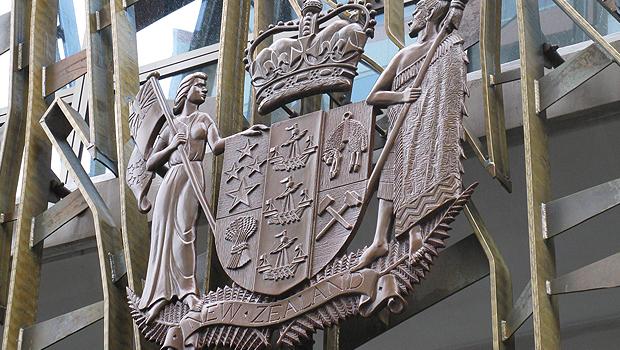
COVID-19 Arrangements for New Zealand courts as at 22 March 2020
The Chief Justice has sent a letter to the profession in response to the Prime Minister's announcement that New Zealand is currently at level 2 – reduced contact – of 4 levels of alert for COVID-19. Her Honour said that her expectation is that whatever level the alert is raised to, the courts will remain available and will operate.
Her Honour's letter is set out in full below.
22 March 2020
Dear Practitioners
COVID-19 Arrangements for New Zealand courts following the Prime Minister’s statement
Yesterday the Prime Minister announced 4 levels of alert for COVID-19. New Zealand is currently at level 2 – reduced contact. High risk individuals (including those over 70 years of age or people with existing medical conditions) are asked to stay at home. All others are asked to reduce contact with one another, to work differently if they can eg remote working and physical distancing in the workplace, to limit non-essential internal travel, and use physical distancing on public transport.
Courts provide an essential community service. My expectation is that whatever level the alert is raised to, the courts will remain available and will operate.
After consultation with heads of bench I write to you about how the courts will operate during heightened COVID-19 alert levels. I will outline:
- Proceedings before the court that will be given priority
- Different ways of hearing cases
- Hygiene in courthouses
- Likely disruption to operations
- Limiting attendance at the courthouse
- Duration
- Where to find information about the status of courts
Proceedings that will be given priority
Proceedings that affect the liberty of the individual, personal safety and matters in which resolution is time critical will be prioritised for hearing.
Some examples of matters to do with liberty are:
- Criminal matters (warrants to arrest, bail, case review hearings, defended hearings, sentencings, various appeals)
- Protection of young persons in custody
- Habeas corpus applications
- Judicial review
- Mental Health Act orders
- Orders under the Health Act
Hearings relating to personal safety include proceedings relating to family violence and care and protection matters.
Matters which are time-critical include injunctions, short sentence appeals and work conducted by the coroners.
Different ways of hearing cases
At level 2 alert and above, the courts will move to limit in-person appearances by counsel, their clients, witnesses, and the general public.
Where possible, decisions will be made on the papers and certain hearings may occur by telephone or audio-visually. Courts have been reviewing the status of cases to identify matters that can be determined in this way. The District Court is putting in place arrangements to enable list courts to proceed by way of an appointment system (designed to limit numbers and time in the courthouse) or via telephone or AVL. The High Court is taking a similar approach where required. Courts will however continue to observe the requirements of the Courts (Remote Participation) Act.
The Ministry of Justice is working to ensure it has sufficient technological infrastructure to support remote hearings and remote working for participants who are outside of the court. Because the courts network was designed to provide enhanced security, it is not a straight forward matter of adopting an off-the-shelf solution for AVL over internet. In order to respond to the current situation, the Ministry is testing an AVL solution with District Court judges this week.
Public health considerations and hygiene in our courts
We intend to ensure that courthouses are cleaned regularly to a sufficient standard to meet the risk that COVID-19 presents. The Ministry of Justice has set in place enhanced cleaning schedules and will urgently expand this in busy courthouses.
Counsel, witnesses and parties should not attend an in person hearing if they are unwell. Signage reminding participants of this will be prominently displayed at the entrances. Those who are symptomatic, will not be allowed to enter the courthouse. Infrared scanners to monitor temperatures of those entering the courthouse are on order. At present hand sanitiser is not reliably available in all courts but soap and hand towels will be available.
There will be thorough and regular cleaning of work surfaces and soap and towels will be replenished regularly.
Likely disruption to operations
Even at alert level 2, there will be disruption to normal schedules and processes as many participants, including court staff, abide by the public health guidance or are affected by the illness itself. The District Court will be worst affected at this time and I urge those who must attend court to be patient. Over time disruptions may become more frequent and we are planning for that.
For this coming week, and in the future, if there are disruptions that affect the ability of a court to operate, court resources will be diverted to ensure that the priority proceedings identified above are attended to by the courts. It is possible that this will result in closure of a court house at short-notice, but we will be supported by the Ministry of Justice in working to avoid this.
Limiting attendance at the courthouse
To accommodate the needs of those who should stay at home or who are unwell, judges will consider adjournments, remote participation methods or on the papers decision-making. I urge counsel to co-operate with one another and the courts to make as much use as possible of on the papers or teleconference/video conference hearings.
To avoid non-essential travel around the country, judges will make the necessary arrangements so counsel and witnesses need not fly to hearings.
Members of the public will be asked not to enter courthouses unless their presence is required as a participant or essential support person. Although public access will be restricted, hearings will remain open and the media will continue to be able to attend at courthouses.
Duration
At the time of writing the Prime Minister had not issued an Epidemic Notice under the Epidemic Preparedness Act. The above arrangements are consistent with the policy of that Act; they extend only so far as necessary to respond to the epidemic, they will cease when its effects no longer require them, and they are time-bounded. They will be reviewed as required, but in any event after three months.
Where to find information about the status of the courts
The Courts of New Zealand website will provide detail about how each court expects to operate. Each court has provided information about its particular arrangements, and these will be regularly updated. I urge counsel to go to that site for information.
Regular updates will also be sent out through the Courts of New Zealand twitter account: @CourtsofNZ.
I acknowledge the work the Ministry of Justice is doing to support the judiciary at this time. The courts are a complex operation and the Ministry are responding to rapidly changing and quite extraordinary circumstances. The heads of bench are working closely with the Ministry as we plan for the judiciary’s response.
Finally, on behalf of the judiciary, I thank you for the cooperative approach the profession has shown over these last two weeks. Your commitment to serving the interests of your clients, and your constructive approach to the necessary changes we have and will continue to implement, will enable the courts to keep operating and justice to continue to be administered. It is in difficult times that the work of the profession and the courts is most important.
Hei konā mai i roto i aku mihi,
Helen Winkelmann Chief Justice/Te Tumu Whakawā






